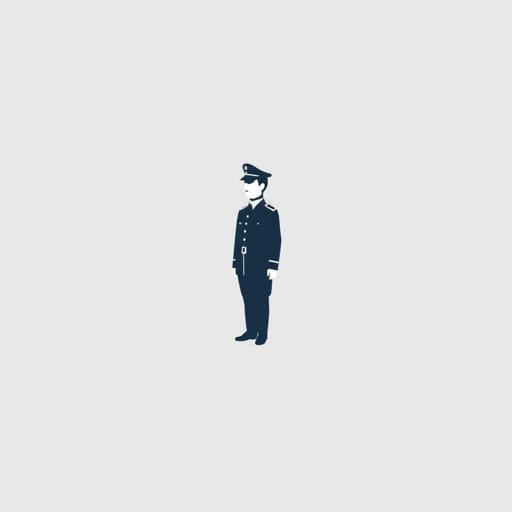Erich Honecker’s life was deeply entangled with the history of the German Democratic Republic (GDR), and understanding his profession involves much more than a simple job title. While his early years included conventional employment, Honecker’s primary occupation, both in function and identity, was that of a professional politician and party functionary. His rise to power in East Germany and his role as the head of state during a defining period of Cold War history made him one of the most notable figures in German politics. This topic explores what Honecker did for a living ‘Was war Honecker von Beruf?’ by delving into his education, political involvement, and leadership within the Socialist Unity Party of Germany (SED).
Early Life and Initial Occupation
Childhood and Family Background
Erich Honecker was born on August 25, 1912, in Neunkirchen, Saarland, in what was then part of the German Empire. Coming from a working-class family, Honecker’s environment was deeply influenced by socialist ideals. His father, Wilhelm Honecker, was a miner and an active socialist, which shaped the young Erich’s worldview from an early age.
Training as a Roofer
Before politics took over his life, Honecker’s first formal occupation was in manual labor. He trained and worked as a roofer. This profession was common among young men from industrial and working-class regions in early 20th-century Germany. He began his apprenticeship at the age of 14 but never truly pursued roofing as a long-term career. The physical demands of roofing and his growing passion for political activism quickly pulled him in a different direction.
Political Formation and Communist Education
Joining the Communist Youth
By the age of 16, Honecker had already joined the Communist Youth League of Germany (KJVD), the youth wing of the Communist Party of Germany (KPD). His interest in political ideology deepened quickly. Recognized for his commitment, Honecker was selected to attend the International Lenin School in Moscow in 1930, a place where many future communist leaders were trained.
Becoming a Professional Revolutionary
Attending the Lenin School marked a turning point in Honecker’s professional identity. Though he had been a roofer, his real calling emerged as a political activist and ideologue. The training in Moscow prepared him to become a professional revolutionary, aligning his occupation directly with his political mission. Upon returning to Germany, he dedicated himself full-time to communist activism, abandoning any future in the roofing trade.
Nazi Persecution and Imprisonment
During the rise of the Nazi regime, Honecker’s political activities placed him in direct opposition to the government. In 1935, he was arrested by the Gestapo and sentenced to ten years in prison for his communist activities. This imprisonment lasted until the end of World War II in 1945. During these years, Honecker was unable to work in any conventional sense, but his role as a political prisoner only cemented his identity as a committed Marxist-Leninist.
Post-War Career and Party Politics
Rise Within the Socialist Unity Party
After the war, Honecker returned to politics with renewed fervor. The Soviet occupation of East Germany created fertile ground for communism to take root, and the Socialist Unity Party (SED) became the dominant political force. Honecker became a full-time functionary within the SED. His position was not merely political; it was his job, salary, and lifestyle.
- 1946: Helped organize the Free German Youth (FDJ), becoming its chairman
- 1950s1960s: Climbed the party hierarchy, earning a spot in the Politburo
- 1971: Succeeded Walter Ulbricht as General Secretary of the SED
From this point forward, Honecker’s profession was synonymous with the East German state. He became head of state in 1976 and remained in power until 1989. His responsibilities included controlling the party, overseeing domestic policies, and maintaining close alignment with Soviet directives.
Defining a Political Profession
What It Meant to Be a Party Leader
In East Germany, leading figures in the Socialist Unity Party were not merely politicians in the Western sense. They were state administrators, ideological enforcers, and decision-makers. Honecker’s job included managing surveillance systems through the Stasi, overseeing economic plans, and directing foreign policy within the Warsaw Pact framework.
State-Sponsored Occupation
Honecker’s salary, residence, and lifestyle were all provided by the state. He lived in a guarded compound outside Berlin, traveled extensively under state sponsorship, and had access to luxuries not available to ordinary East German citizens. His ‘profession’ was deeply embedded in the GDR’s structure: a political functionary whose very existence depended on maintaining party rule.
The Fall from Power
In 1989, the tides turned. Massive protests, economic hardship, and the erosion of Soviet support led to the peaceful revolution in East Germany. Honecker was forced to resign in October 1989. This marked the end of his professional career. The man who had lived as a party leader for decades was suddenly stripped of all official roles and protection.
Exile and Final Years
After the fall of the Berlin Wall, Honecker was briefly held in custody, then fled to the Soviet Union, and later to Chile. He was returned to Germany for trial in 1992 but was released on health grounds in 1993. He died in exile in Santiago, Chile, in 1994.
What Was Honecker’s Profession?
To answer the question Was war Honecker von Beruf? one must look beyond simple labels. Technically, he started his working life as a roofer, but he never truly practiced that profession. Instead, Honecker became a lifelong political functionary a professional communist whose entire adult life was consumed by ideology, governance, and party leadership. His career reflects the structure of the GDR itself, where the state and the party were one and the same.
In historical and biographical terms, Erich Honecker’s profession was being the embodiment of East German communism. His story is not just about employment, but about the occupation of power and the life of a man shaped by and shaping a regime.
